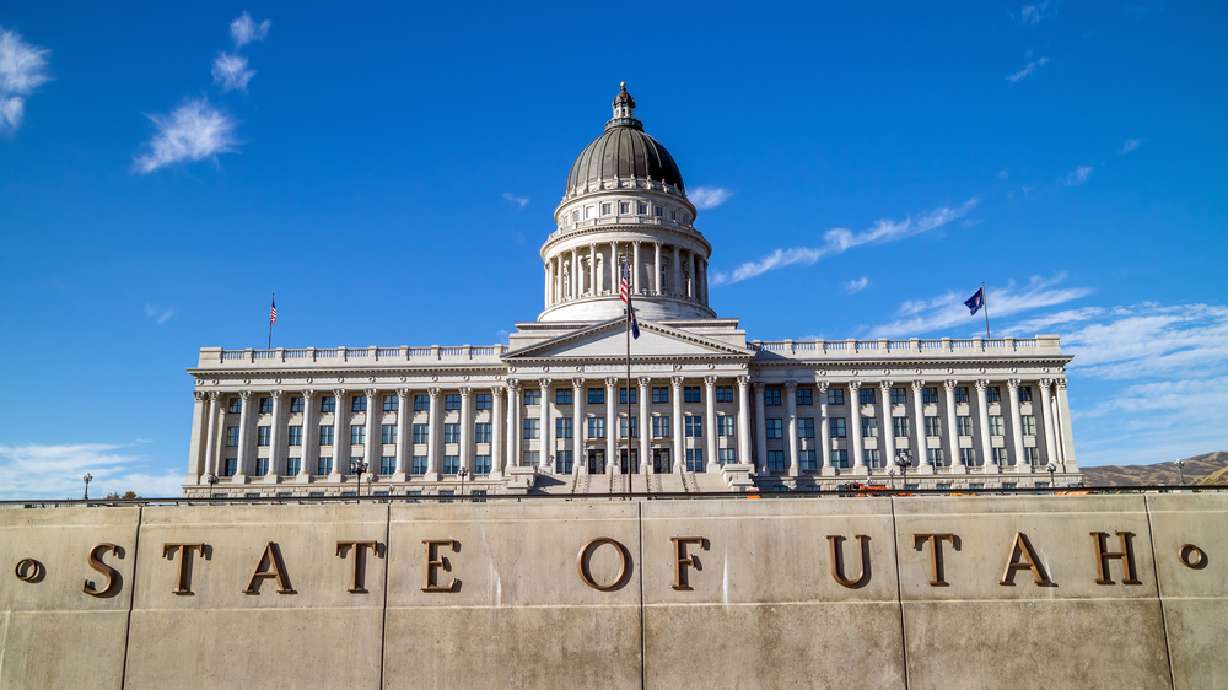Estimated read time: 4-5 minutes
This archived news story is available only for your personal, non-commercial use. Information in the story may be outdated or superseded by additional information. Reading or replaying the story in its archived form does not constitute a republication of the story.
SALT LAKE CITY — With the Utah legislative session just about two short months away, stakeholders in the state are gearing up for a busy period of lawmaking.
One group that will be active inside and outside of the statehouse will be the Utah League of Cities and Towns. But who are they and what exactly does the organization do?
Here's a quick look:
The Utah League of Cities and Towns first started in 1907, according to its website. The group currently represents 247 different municipalities across the state that have a total of about 1,300 elected officials, according to Director Cameron Diehl. The league advocates for policies that will impact cities and towns in Utah. Staff members also help local government officials better administer in their areas.
One of the league’s core principles is that the government that is closest to the people governs best, Diehl said.
“We have 247 unique and diverse communities who all have different needs and different approaches,” Diehl said. “So the more we can solve locally, the better off everyone is.”
The organization also works to strengthen the quality of local governments and administration across the state. It is a non-partisan and intergovernmental collective, according to the group’s website.
The municipalities that the ULCT represents range from as small as Scofield, Carbon County, — population 23 — to Salt Lake City, with nearly 200,000 residents.
The legislative session is the busiest time for the league, Diehl said.
League staff members identify bills that they think will impact municipalities in various ways and track them throughout the legislative session, Diehl said. They form focus groups and committees that analyze the bills and gauge public interest on the issues.
During January's legislative session, ULCT staffers followed 301 bills, according to Diehl. The year before that, they followed 276 bills, and they followed 251 bills during the 2016 legislative session.
During the session, league members and staffers have three pillars of focus, according to board member Mike Mendenhall. Those are:
1. Respecting each other’s roles
2. Collaborating together
3. working to achieve the best outcome for Utah cities and towns
“Really, what we’re trying to do is just listen to our local friends and neighbors and make the best decisions for our respective cities,” said Mendenhall, who is also a Spanish Fork City Council member.
Those principles extend after lawmakers are finished at the statehouse. After the session is over, league staffers produce a publication that includes details about all the bills that passed that may impact municipalities, according to Diehl.
They also hold two conferences to help their members learn more about the policies. One takes place in St. George in the spring and the other is in Salt Lake City in the fall, Diehl said.
The conferences help local government officials learn how their government works, Mendenhall said. They’re also taught how to conduct meetings and other government business in an effective way for the benefit of local residents, he added.
“It’s a great place for local elected officials from all over the state to come and basically get a crash course, if you will, about how a government works, especially local government and the role that it plays in your city,” Mendenhall said.
The conferences are also a good opportunity to collaborate with and learn from the leaders of other cities and towns in Utah, he said.
If leaders of a city are experiencing a challenge, there’s almost always another municipality that has dealt with the same issue before, Mendenhall said. So it’s helpful to be able to see how they found a solution to those problems.
The league also has maintained good relationships with Utah’s federal congressional delegation in Washington, D.C., Diehl said. Representatives Mia Love and John Curtis, both former mayors of Utah cities, were active with the league in the past, he said.
Even at the federal level, it’s important to make sure legislation keeps local leaders in mind, Diehl said.
“We work hard to ensure that they preserve the authority and the autonomy that they need in order to lead their communities,” he said.
Two major issues the league will be tracking during this legislative session will be affordable housing and water usage, Mendenhall said. Though the league encourages its membership to think locally, they also ask local leaders to consider the needs of their neighboring towns and cities in the region, he said.
“The government that’s closest to the people… usually gets the best results because we work, eat, play, go to church or whatever with our neighbors and friends, and so we know them,” Mendenhall said. “It’s closest to them and they trust us quite a bit.”









